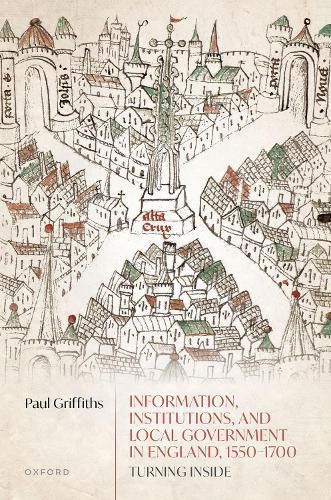Readings Newsletter
Become a Readings Member to make your shopping experience even easier.
Sign in or sign up for free!
You’re not far away from qualifying for FREE standard shipping within Australia
You’ve qualified for FREE standard shipping within Australia
The cart is loading…






The years between 1550 and 1700 saw significant changes in the nature and scope of local government: sophisticated information and intelligence systems were developed; magistrates came to rely more heavily on surveillance to inform 'good government'; and England's first nationwide system of incarceration was established within bridewells. But while these sizeable and lasting shifts have been well studied, less attention has been paid to the important characteristic that they shared: the 'turning inside' of the title. What was happening beneath this growth in activity was a shift from 'open' to 'closed' management of a host of problems--from the representation of authority itself to treatment of every kind of local disorder, from petty crime and poverty to dirty streets. Information, Institutions, and Local Government in England, 1550-1700 explores the character and consequences of these changes for the first time. Drawing on wide-ranging archival research in 34 archives, the book examines the ways in which the notion of representing authority and ethics in public (including punishment) was increasingly called into question in early modern England, and how and why local government officials were involved in this. This 'turning inside' was encouraged by insistence on precision and clarity in broad bodies of knowledge, culture, and practice that had lasting impacts on governance, as well as a range of broader demographic, social, and economic changes that led to deeper poverty, thinner resources, more movement, and imagined or real crime-waves. In so doing, and by drawing on a diverse range of examples, the book offers important new perspectives on local government, visual representation, penal cultures, institutions, incarceration, and surveillance in the early modern period.
$9.00 standard shipping within Australia
FREE standard shipping within Australia for orders over $100.00
Express & International shipping calculated at checkout
The years between 1550 and 1700 saw significant changes in the nature and scope of local government: sophisticated information and intelligence systems were developed; magistrates came to rely more heavily on surveillance to inform 'good government'; and England's first nationwide system of incarceration was established within bridewells. But while these sizeable and lasting shifts have been well studied, less attention has been paid to the important characteristic that they shared: the 'turning inside' of the title. What was happening beneath this growth in activity was a shift from 'open' to 'closed' management of a host of problems--from the representation of authority itself to treatment of every kind of local disorder, from petty crime and poverty to dirty streets. Information, Institutions, and Local Government in England, 1550-1700 explores the character and consequences of these changes for the first time. Drawing on wide-ranging archival research in 34 archives, the book examines the ways in which the notion of representing authority and ethics in public (including punishment) was increasingly called into question in early modern England, and how and why local government officials were involved in this. This 'turning inside' was encouraged by insistence on precision and clarity in broad bodies of knowledge, culture, and practice that had lasting impacts on governance, as well as a range of broader demographic, social, and economic changes that led to deeper poverty, thinner resources, more movement, and imagined or real crime-waves. In so doing, and by drawing on a diverse range of examples, the book offers important new perspectives on local government, visual representation, penal cultures, institutions, incarceration, and surveillance in the early modern period.